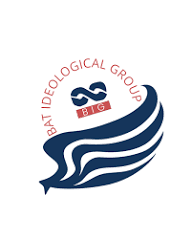Missing N6 Trillion: SERAP, Others Pursue Legal Action Against Tinubu Administration at ECOWAS Court Over Non-Disclosure of NDDC Report

Socio-Economic Rights and Accountability Project (SERAP), along with four concerned Nigerian citizens, has initiated legal proceedings against President Bola Tinubu’s administration, citing its failure to release the forensic audit report of the Niger Delta Development Commission (NDDC).
This report allegedly implicates prominent officials and politicians in the disappearance of N6 trillion from the commission between 2001 and 2019.
In response to accusations of extensive corruption, the late former president Muhammadu Buhari ordered a forensic audit of the NDDC’s activities in 2019. Furthermore, the Minister of the Federal Capital Territory (FCT), Nyesom Wike, recently accused the spouse of a former minister of receiving N48 billion over a year “to train Niger Delta women.”
The four Nigerians involved in the lawsuit are Prince Taiwo Aiyedatiwa, Chief Jude Igbogifurotogu Pulemote, Ben Omietimi Tariye, and Princess Elizabeth Egbe.
Filed under suit number ECW/CCJ/APP/35/25 last Friday at the ECOWAS Community Court of Justice in Abuja, the plaintiffs seek: “a declaration that the Nigerian government’s failure to disclose the NDDC forensic report constitutes a fundamental violation of the nation’s international human rights obligations.”
The plaintiffs prayed for “an order mandating the Nigerian government to release and ensure public access to the NDDC forensic report, which has been submitted but remains concealed.”
Additionally, they request “an order requiring the Nigerian government to implement effective strategies to address transparency and accountability deficits in the allocation of public funds designated for the NDDC.”
The plaintiffs argue that “the Nigerian government has infringed upon our right to understand the truth regarding the corruption allegations detailed in the NDDC forensic report. The obstruction of the report’s publication perpetuates impunity and conceals the allegations documented within it.”
They further contend that “the public’s right to access information and understand governmental actions on their behalf is inherent in freedom of expression. Without this, truth would wither, and public participation in governance would remain fragmented and illusory.”
The plaintiffs assert that “the Nigerian government has failed and refused to disclose the NDDC forensic report, providing no justification for withholding it from the plaintiffs and the Nigerian public.”
According to the plaintiffs, “the Nigerian government is legally obligated to ensure transparency and access to information regarding the NDDC forensic report as part of the right to seek, receive, and impart information of all kinds.”
The legal action, filed on behalf of SERAP and the four concerned Nigerians by their attorneys, Kolawole Oluwadare, Kehinde Oyewumi, and Andrew Nwankwo, states: “There is an overriding public interest in the disclosure of the NDDC forensic report.”
“The Nigerian government’s persistent failure to publish the NDDC forensic report deprives the plaintiffs of the ability to thoroughly examine the report and hold the administration accountable, undermining the rule of law and infringing upon the plaintiffs’ other rights.”
“The information sought is not classified for reasons of national security; the NDDC forensic report pertains to issues of transparency, accountability, and human rights, as covered under the African Charter on Human and Peoples’ Rights and the International Covenant on Civil and Political Rights.”
“Access to public information is a fundamental human right protected by Article 9 of the African Charter on Human and Peoples’ Rights and Article 19 of the International Covenant on Civil and Political Rights, which obligate the Nigerian government to respect, promote, and ensure it. Nigeria has ratified both treaties.”
“Article 9 of the African Charter on Human and Peoples’ Rights and Article 19 of the International Covenant on Civil and Political Rights impose a positive obligation on the Nigerian government to allow the plaintiffs access to the NDDC forensic report under its custody and control.”
“Access to information is a vital tool for fostering citizenship, and the plaintiffs have the right to engage in matters of public interest, such as pursuing accountability and justice for victims of corruption documented in the NDDC forensic report.”
“These matters of public interest align with the ideals underpinning the African Charter on Human and Peoples’ Rights, the International Covenant on Civil and Political Rights, and other human rights treaties to which Nigeria is a state party.”
“Access to information concerning the NDDC forensic report would enable the plaintiffs to effectively exercise their human rights and hold the Nigerian government accountable for the allegations documented in the report.”
“Public access to the NDDC forensic report would also enhance democratic participation, empower citizens to hold the Nigerian government accountable, and combat corruption within the country.”
“To ensure the full and effective exercise of the right to information, state administration, including the Nigerian government, must adhere to the principles of maximum disclosure and good faith.”
“The principle of maximum disclosure is a guiding tenet of the right to information, as enshrined in Article 9 of the African Charter on Human and Peoples’ Rights and Article 19 of the International Covenant on Civil and Political Rights.”
“This principle advocates for a legal framework where transparency and the right to access are the norm, subject only to strict and limited exceptions. The right to information is the rule, while secrecy is the exception.”
“The right to information is not absolute; it may be subject to restrictions.”
“However, these restrictions must strictly comply with the requirements of international human rights law, which stipulate that limitations are exceptional, legally established, based on a legitimate aim, and necessary and proportional to achieve that aim.”
“The exceptions should not become the general rule; they must recognize that access to information is the norm, and secrecy is the exception.”
“The Nigerian government bears the burden of proving that restrictions on publishing and accessing information regarding the NDDC forensic report align with international human rights standards and the legal obligations imposed on the country.”
“Given that the NDDC forensic report is under the custody and control of the Nigerian government, discretionary and arbitrary actions by the state must be avoided when establishing restrictions on the right to information and transparency.”
“The denial of access to information regarding the NDDC forensic report constitutes a breach of the plaintiffs’ right to a legal remedy and is incompatible with the requirements of the African Charter on Human and Peoples’ Rights and the International Covenant on Civil and Political Rights.”
No date has been scheduled for the hearing of the lawsuit.








